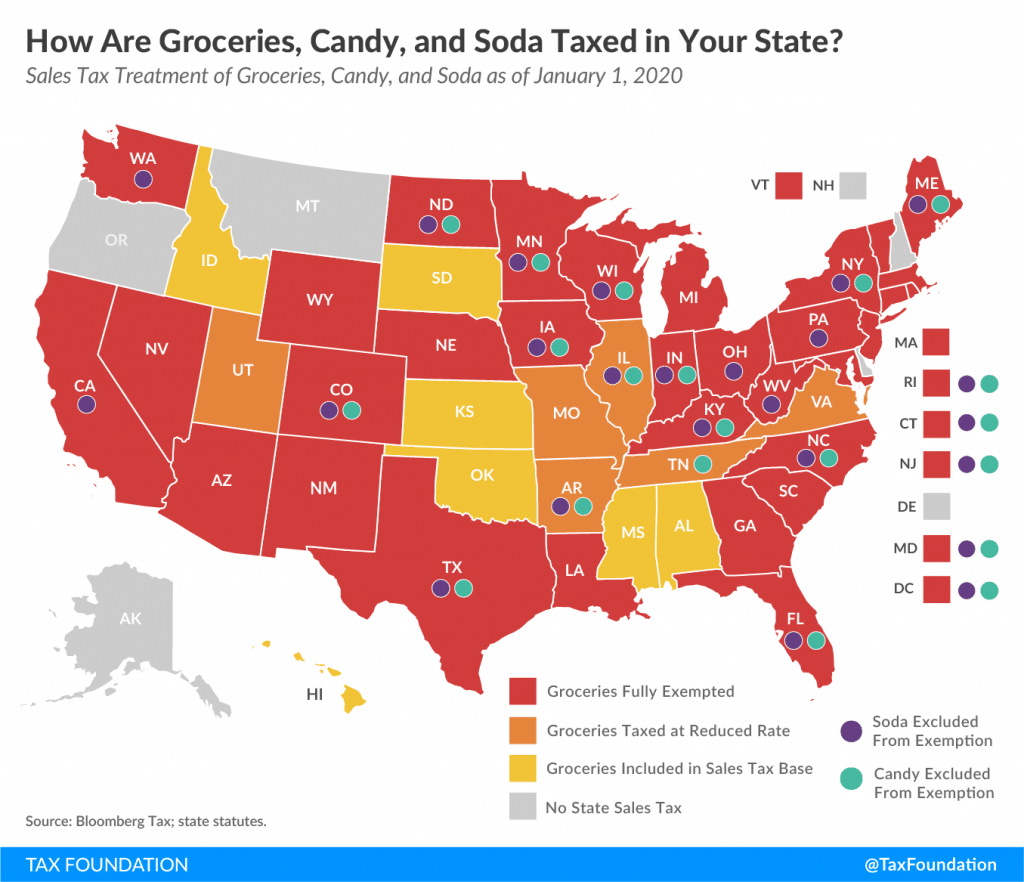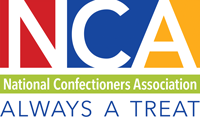Nineteen states and the District of Columbia tax candy differently from other food and grocery products. These taxes on confectionery products single out our member companies’ products from other foods, increase prices for consumers and burden confectionery retailers, distributors and manufacturers. In tandem with in-state allies, NCA works to discourage additional tax burdens on confectionery products by highlighting the unique role that candy plays in the United States and our industry’s place as an economic engine.
Which states currently tax candy?
This map from the Tax Foundation shows states that currently tax candy. The states marked with a teal dot are states that exclude confectionery products from exemptions that prevent taxes on grocery products.

How do states decide to tax candy and other grocery products?
According to the Tax Foundation, grocery tax exemptions reduce the cost of products deemed necessary, which forces states to decide which products are essential. When foods are categorized as essential based solely on nutritional value, candy is often one of the first products taxed.
By assigning additional taxes to certain products, states unfairly label products as “good” or “bad.” NCA advocates for consumers’ freedom to make an informed choice about what products best suit their families’ needs rather than have the products deemed “essential” chosen for them. Enjoying a confectionery treat as part of a happy, balanced lifestyle has been shown to contribute to wellness in other respects by supporting emotional well-being, sparking opportunities for connection with friends and family and bringing small moments of joy to consumers’ lives.




